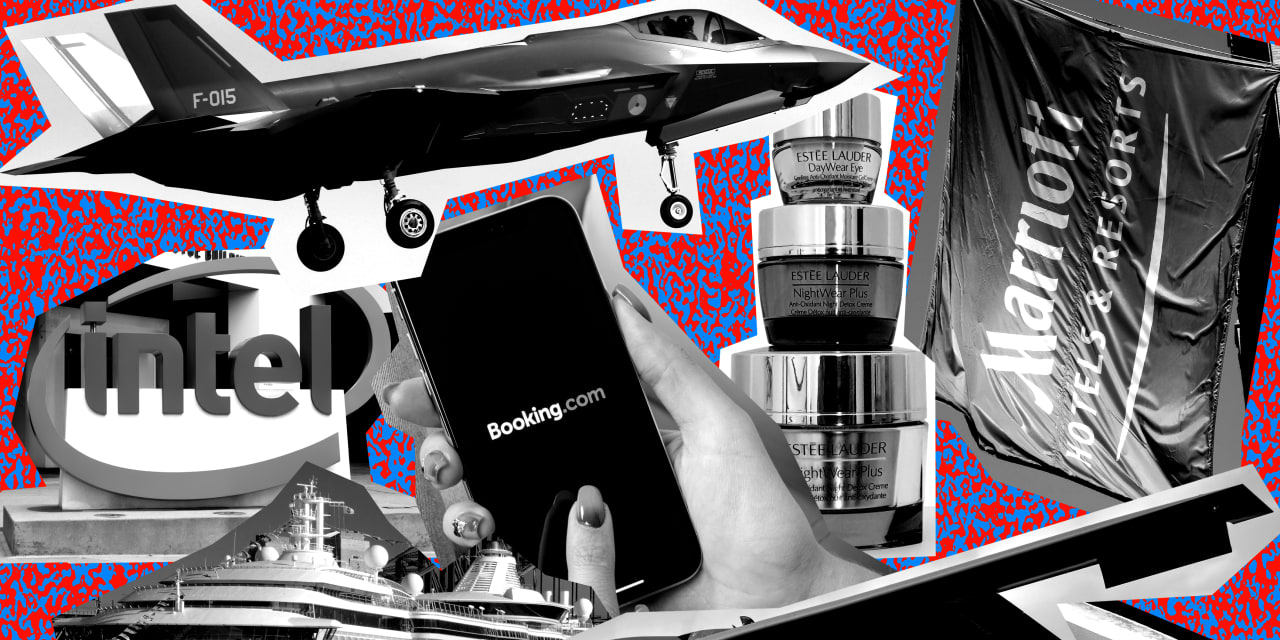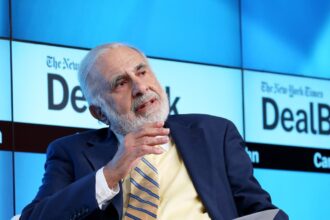Since Hamas attacked Israel on Oct. 7, the stock market has largely shrugged off the escalating conflict, but some businesses are certainly feeling the pain more than others.
Out of the
S&P 500
companies that have reported earnings since Oct. 7, about 50 have mentioned the Israel-Hamas war in earnings calls.
Most condemned the violence, expressed sympathy for those suffering, and support for employees in the region. But they also mentioned travel cancellations, supply-chain problems, and other concerns.
Here is a summary of what executives are saying:
Travel Impact
Many comments came from the travel sector, although the damage is largely contained.
Booking Holdings
(ticker: BKNG) experienced a slowdown starting the second week of October due to cancellations and a drop in new bookings, said CFO David Goulden. While the cancellations were mostly concentrated in Israel, travel trends outside the country were affected as well.
Marriott International
CFO Kathleen Kelly Oberg noted cancellations and softer demand for its five properties in Israel and 27 in Lebanon, Jordan, and Egypt. But fees for these four countries made up less than 1% of Marriott’s (MAR) total in 2022.
Norwegian Cruise Line
(NCLH) is also seeing elevated cancellations and lower new bookings in the Middle East, said CEO Harry Sommer. Before the conflict, about 7% of the firm’s planned capacity for the fourth quarter of 2023 and 4% for 2024 included visits to the region. Still, Sommer noted the cruise industry’s flexibility to pivot and provide other attractive itineraries.
This was echoed by Jason Liberty, CEO of
Royal Caribbean Cruises
(RCL), who said guests have tended to change destinations instead of not taking the trip at all during times like this.
About 1.5% of
Royal Caribbean
‘s capacity had planned to visit Israel in the fourth quarter, said Liberty, and the cancellations and adjusted itineraries will likely shave $0.05 off the firm’s earnings per share. If the situation continues to deteriorate, however, it could weigh on consumer psyche and spill over to demand in Europe, he said.
Economic Disruption
Cosmetics giant
Estée Lauder
(EL) recently lowered its 2024 outlook, mostly driven by weakness in the mainland China market, but also because of potential business disruptions in the Middle East. The region has contributed to a $0.08 cut from its earnings forecast for the current quarter.
Meta Platforms
(META) is feeling the impact as well. While the company doesn’t have material direct revenue exposure to Israel and the Middle East, it has observed softer advertising spend in the beginning of the fourth quarter, correlating with the start of the conflict, said CFO Susan Li.
“Historically, we have seen broader demand softness follow other regional conflicts in the past such as in the Ukraine war,” she said during the earnings call.
Supply Chain Concerns
Intel
(INTC) set up operations in Israel almost 50 years ago. CEO Patrick Gelsinger praised the team’s resilience since the war started, noting that it hasn’t missed a single commitment despite the challenges. But he also assured investors that even if the situation in Israel worsens, the chip giant’s supply chain is diverse enough to withstand regional risks.
Some companies are moving quickly to reduce damages. “Initiatives are underway to move inventory, identify alternative resources, and limit potential supply disruptions,” said Glenn Coleman, CFO of
Dentsply Sirona,
a dental equipment manufacturer with two manufacturing sites in Israel.
Align Technology
(ALGN) manufactures 3-D digital scanners and Invisalign clear aligners. Its manufacturing facilities in Israel account for a reasonable amount of capacity, said CEO Joseph Hogan. Those facilities are currently open and operating, but the company is preparing for the worst.
“I’ve had other businesses in Israel at times like this, too, not this bad,” said Hogan, “If things get worse or [there is] war over there, we can’t guarantee what we have.”
Defense Boom
One sector that will benefit from the conflict is defense and aerospace. Already, the Biden administration has asked Congress for $106 billion in supplemental funding—including $14.3 billion to support Israel.
Northrop Grumman
(NOC) recently increased the guidance for its defense systems business. “There is a lot of demand in our munitions business, not just in those theaters [Ukraine and Israel], but also from other countries that see the rising threat environment,” said CFO David Keffer. “I would say that growth is upon us and has an opportunity to continue for the next several years.”
Jason Aiken, CFO of
General Dynamics
(GD), noted the company’s artillery production has tremendously picked up since the war in Ukraine broke out—from 14,000 rounds a month to 20,000. The demand from Israel-Hamas conflict would be a wild-card, he said, noting the firm plans to further accelerate its production capacity up to 100,000 rounds a month.
Write to Evie Liu at [email protected]
Read the full article here










